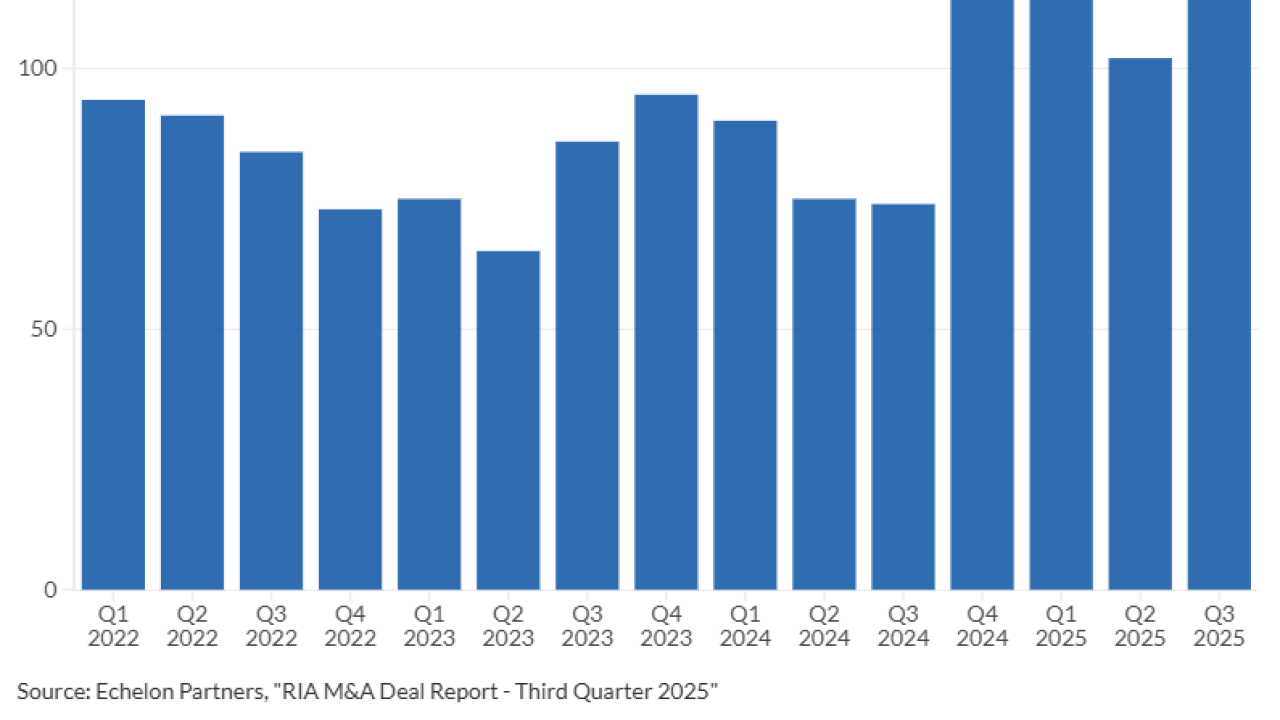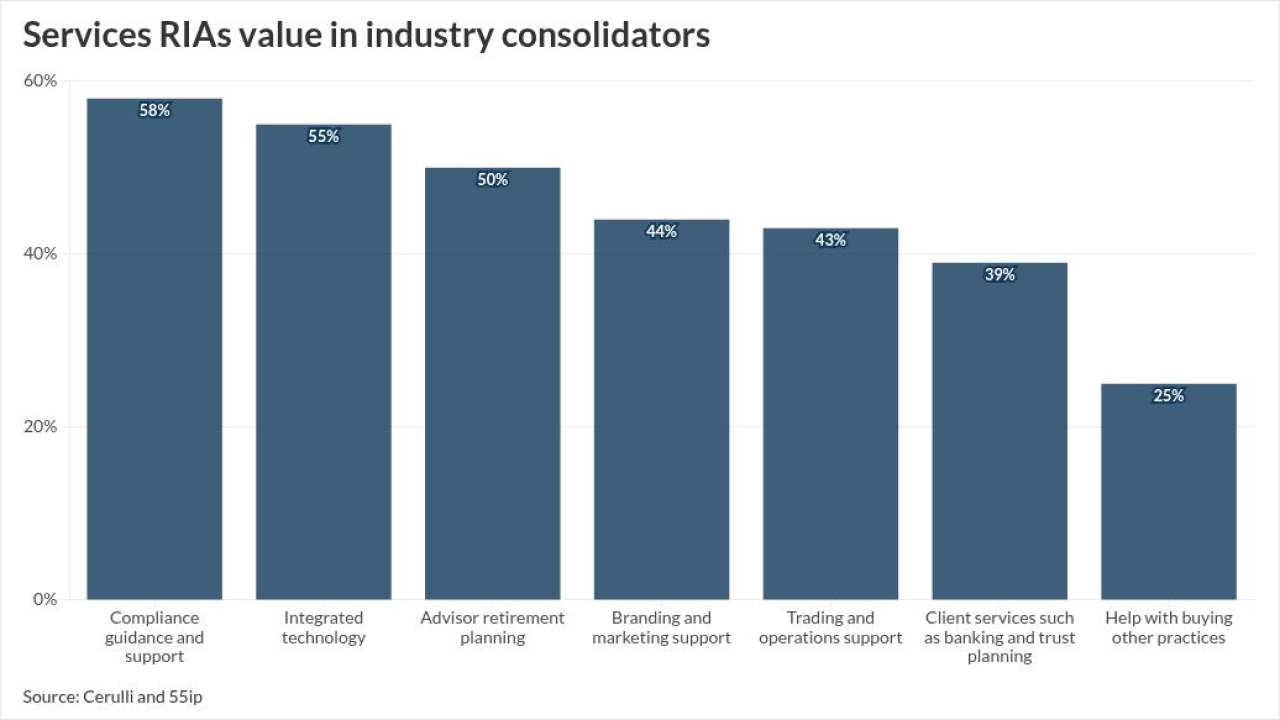In short order, Vanguard became a giant in the digital investing marketplace, propelled by converting much of its self-directed base to hybrid advice, its virtual lock on low-cost funds and the investor trust its brand has cultivated.
But it has learned that in the digital investing world, technology can disrupt the customer experience of even the biggest brands, and just as quickly put their brand reputation at risk.
Vanguard’s Personal Advisor Services sprinted to $120 billion in digital client assets, the first digital advice platform to do so. But like other platforms, it has experienced tech issues during moments of peak activity,
That's been a jarring experience for many of its self-directed investors accustomed to being in control of their experiences. And as a result, investors say customer support is wanting at the firm, according to the American Customer Satisfaction Index report this month.
In fact, Vanguard dropped to 79 out of 100 points, replaced in first place by Edward Jones, which topped the rankings with 80 points. The firm also suffered the largest annual point decline in customer satisfaction among internet investment providers.
“The technology gaffs are highlighting an inability to provide reliable services,” says David VanAmburg, managing director for the ACSI. “Beyond that, the customer service was lackluster. That’s a pretty potent one-two punch.”
The drop off was caused by “periodic systems issues” including another website outage in October and emails generated in error, according to the report.
The firm has acknowledged its tech issues.
“We understand that it is frustrating when clients do not receive the high standards of service they expect from us, and we apologize,” says a spokeswoman for Vanguard, which is based in Malvern, Pennsylvania.

Vanguard recently completed a major systems upgrade to improve the resiliency of its website, she says, introducing two-factor authentication and voice verification to address security concerns. Vanguard also updated its mobile application.
“While Vanguard continues to lower cost and deliver competitive performance to our investors, we are also investing considerably in improving our client service and experience,” the spokeswoman says, adding that the customer satisfaction results still show Vanguard on par with its competitors. In fact, the firm ranked No. 1 among self-directed clients in a
The issues may arise from a shock to expectations for longtime customers that have switched to its hybrid platform. Ninety percent of assets on PAS are from self-directed clients who already had accounts with Vanguard, according to the firm.
Funneling DIY clients toward advised accounts may come with unforeseen consequences, says Grant Easterbrook, co-founder of the 401(k) advisor Dream Forward. Vanguard as a mutual fund family is the gold standard, but its brokerage arm may be struggling to keep up with the low-cost model, he says.
“There's really two Vanguards,” Easterbrook says. In particular, Vanguard may struggle to offer the lowest possible costs and a not-for-profit model with the need to make big tech investments and hire additional support staff, he says.
-
With plans to offer six new funds, the passive investing giant is seeing strategic beta as an opportunity, not a threat, says one contributor.
December 8 -
Although bigger may be better for the fund giants, passive strategies may be blurring the inherent value of securities.
December 4 -
The seven funds are expected to begin trading in the first quarter.
November 28
“Being a huge consumer brand with a huge number of customers and accounts — and a nonprofit at the same time — it's a tough balancing act for corporate leadership,” Easterbrook says. “In fact, I'm struggling to think of many examples of nonprofits or nongovernmental organizations that serve such a huge group of consumers.”
When the robo advisory technology falls short, customer satisfaction suffers.
“Customer expectations among brokerages continue to increase and it’s extremely difficult for these firms to deliver on them at a high level all the time,” said Vijay Raghavan, a senior analyst at the consulting firm Forrester. Vanguard dropped to third place from second in Forrester's 2018 Customer Experience Index of 110,000 customers.
When tech glitches happen, clients start to question the safety of their assets, says April Rudin, CEO of The Rudin Group, a marketing firm. “People want to believe and trust in their technology companies — especially when it comes to their money,” Rudin says.
Vanguard will have to prioritize customer experience, instead of relying on existing clients to further growth, she says, adding, “Brand equity from the old Vanguard brand just doesn’t matter anymore.” Adding top-notch user experiences, like those available at Amazon or Netflix, are the new normal, she says.
That’s especially true as the robo advisory marketplace is expected to skyrocket over the next five years and tech giants like Facebook and Google have flirted with the idea of offering financial services. Robo advice is expected to grow at an overall annual compound growth rate of 53% from 2018 to 2023, leading to revenue of $73 billion by 2023,
With more than 20 million investors in 170 countries, Vanguard’s client loyalty will likely remain high, Easterbrook says, if it can provide the level of customer support needed for such a massive customer base.
“Vanguard has an enormous amount of goodwill because of the name they made for themselves with Vanguard the fund family,” Easterbrook says, adding that it would take years of consistent problems to erode its reputation. “People don't move accounts very often.”
However, the recent problems could be an early indicator that robo advice needs to double down on its infrastructure before bringing in more client assets.
“There’s nothing that will shake client confidence more than not being able to access their money,” Rudin says.





